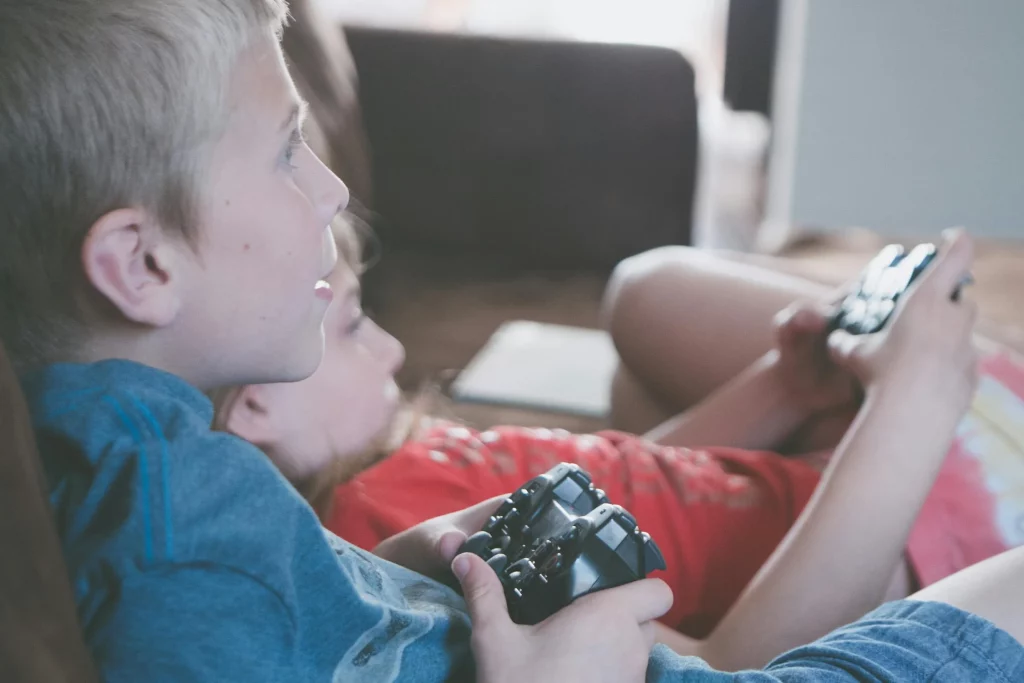
For many people, video games are a wonderful way to relax, connect with friends, and escape into different worlds for a little while. But what happens when gaming crosses the line from a hobby into something far more consuming and damaging?
We have around 65 percent of Americans playing video games regularly every week. Among these players, 85 percent are teens, and about four in ten of them do so daily. For a lot of them, gaming has gone from being mere entertainment to straight-up addiction.
It can be easy to dismiss excessive gaming as harmless fun. However, for some, it slowly begins to erode real-life responsibilities, relationships, and mental well-being. Recognizing when gaming habits have turned harmful is essential before more serious consequences set in.
You Constantly Prioritize Gaming Over Everything Else
When video games start pushing aside important aspects of life – work, school, family gatherings, personal hygiene – it’s a major red flag.
You might find yourself skipping dinner because you’re “almost at the next level.” You might tell yourself you’ll only play for an hour and then suddenly notice it’s morning.
Over time, this constant prioritization can leave careers, studies, and relationships in shambles. When gaming consistently outranks everything else, it stops being entertainment and starts being a life-altering obsession.
Video Games Lead to Psychological Distress
Gaming is meant to be fun, yet for some, it slowly morphs into a source of stress, anxiety, and even depression. As gaming hours increase, the pressure to win, the frustration from losses, and the emotional rollercoaster of constant stimulation can cause significant psychological distress.
Many gamers report feelings of emptiness when they’re not playing, mood swings, or uncontrollable anger after losing. Some even experience withdrawal symptoms – irritability, sadness, restlessness – when they try to cut down. These emotional swings make it clear that gaming is no longer serving a healthy role in their lives.
Parents around the world have grown increasingly concerned about the impact of video games on their children’s mental health. According to TruLaw, this has led to a rise in video game addiction lawsuits. These lawsuits allege that the gaming industry has knowingly designed games to be addictive, putting profit over players’ mental well-being.
In some cases, families have pursued significant video game addiction lawsuit payouts after their children developed severe gaming addiction. One video game addiction lawsuit payout will vary from another and the amounts haven’t been finalized.
As the number of video game addiction lawsuits continues to grow, the conversation around gaming addiction has become more urgent. This is forcing companies to confront the darker side of the gaming culture they have helped create.
Gaming Starts to Replace Real Relationships
Video games can be social, especially with multiplayer games offering chances to team up with players across the world. However, when digital interactions begin to replace real-world relationships, trouble brews.
Canceling plans, avoiding family, and retreating further into the gaming world often lead to isolation. Over time, this distance can strain once-strong friendships and familial bonds.
No matter how vibrant a game’s community feels, it’s no replacement for face-to-face human connection or emotional intimacy.
Your Sleep Schedule is Completely Out of Control
One of the more immediate ways video games can negatively impact your life is by disrupting your sleep. Staying up past midnight occasionally isn’t unusual, especially if you’re young. But if you’re regularly sacrificing sleep to game and struggling to stay awake during the day, it’s a sign of a deeper problem.
Lack of sleep leads to irritability, poor focus, weakened immune function, and can even contribute to depression. If gaming is wrecking your sleep, it’s not just your virtual world that’s suffering; your body and mind are paying the price too.
Your Physical Health is Deteriorating
Gaming for long hours doesn’t just impact your mental health; it can also take a toll on your physical well-being. A sedentary lifestyle can contribute to weight gain, muscle weakness, and increased risk of conditions like diabetes and heart disease.
More immediate issues like eye strain, headaches, and chronic back or neck pain also crop up. In extreme cases, some gamers have even developed repetitive strain injuries or blood clots from sitting for extended periods. If gaming habits are causing physical problems, it’s time to take a hard look at how much gaming is controlling your life.
Frequently Asked Questions (FAQs)
When is gaming considered an addiction?
Gaming is considered an addiction when it starts interfering with essential aspects of life, like work, school, and physical or mental health. If someone feels unable to control their gaming habits and prioritizes it over everything else, it often points to gaming addiction.
How does gaming impact your personal relationships?
Gaming can strain personal relationships when it consumes time and emotional energy that would otherwise be spent with family, friends, or partners. Missed events, broken communication, and emotional detachment are common issues. Over time, resentment can build up among loved ones who may feel neglected or sidelined in favor of the game.
What is considered a healthy form of playing video games?
A healthy approach to gaming involves setting clear boundaries and balancing gaming with other aspects of life. It involves treating gaming as a source of entertainment rather than an escape from real-world problems. Playing in moderation and ensuring that gaming doesn’t interfere with responsibilities or sleep are signs of a balanced gaming habit.
Video games can be an incredible way to unwind, express creativity, and even build community. But like anything else, too much of a good thing can become dangerous. When gaming begins to dominate your life and drain you mentally and physically, it’s no longer just a hobby. It’s a problem that demands attention.
If you or someone you care about is struggling, don’t be afraid to seek help. It’s never too late to take control back.
